Introduction Of Bananas
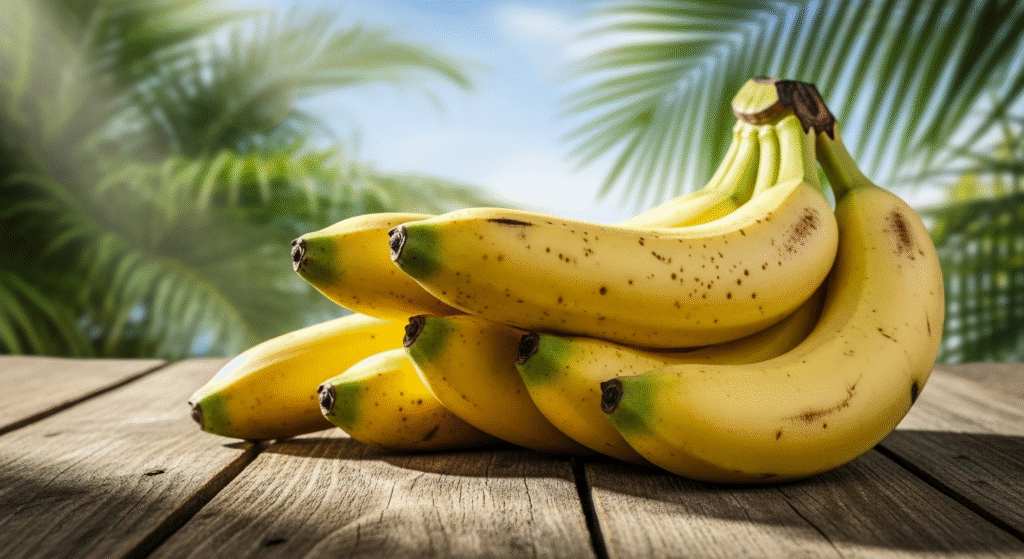
History and Cultivation
Benefits of Banana : Bananas are one of the oldest cultivated crops in the world, with a rich history that stretches back over 7,000 years. Originally grown in Southeast Asia, bananas have journeyed across continents to become one of the most widely consumed fruits globally. They’re grown in over 135 countries, making them a staple in both developed and developing nations. What makes them so universally loved? Well, it’s not just the sweet, creamy texture—it’s their convenience, affordability, and versatility.
Unlike some fruits that require peeling, slicing, or even special tools to eat, bananas come in nature’s perfect packaging. The yellow peel protects the fruit inside, and once you open it, there’s no mess—just a soft, satisfying bite. Whether you’re rushing out the door, packing a school lunch, or blending a smoothie, bananas slide easily into your lifestyle.
Their cultivation is also a testament to how vital they are in economies around the globe. Countries like India, the Philippines, and Ecuador depend heavily on banana farming for livelihoods and exports. It’s more than just a fruit—it’s a global powerhouse.
Nutritional Profile of Bananas
Bananas are often underestimated when it comes to nutritional value. Sure, they’re sweet and easy to eat, but don’t let that fool you—they’re packed with goodness. One medium banana (about 118 grams) contains:
Calories: ~105
Carbohydrates: 27g
Sugar: 14g
Fiber: 3g
Protein: 1.3g
Potassium: 422mg (12% of daily value)
Vitamin C: 10% of daily value
Vitamin B6: 20% of daily value
Magnesium: 8% of daily value
Manganese: 14% of daily value
What’s truly remarkable is how bananas offer this rich nutrient profile with so few calories and virtually no fat. They provide quick energy, maintain fluid balance, support nerve function, and even promote heart health—all in one humble fruit. That’s why they’re beloved by fitness enthusiasts, nutritionists, and everyday snackers alike.
1. Digestive Health Benefits
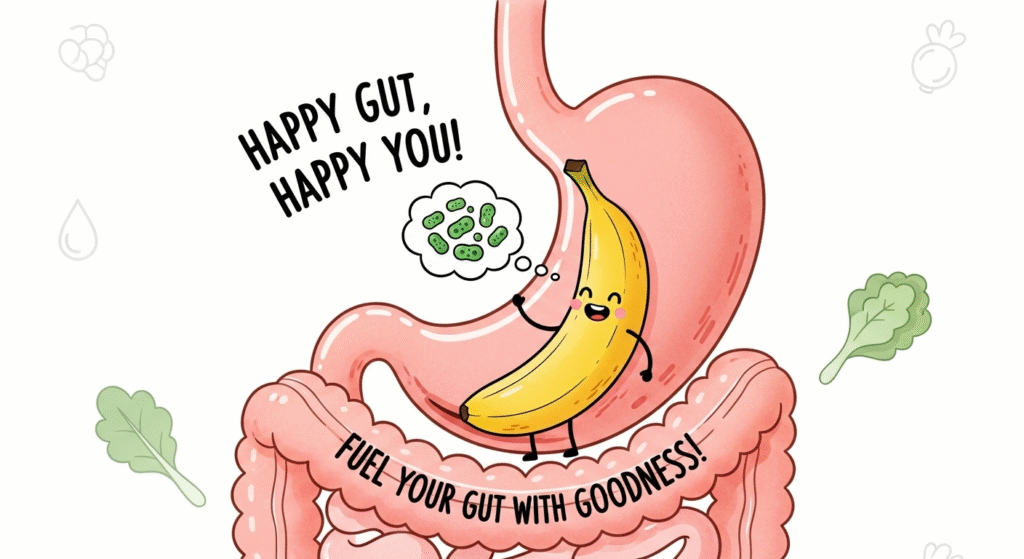
High Fiber Content
Fiber is your gut’s best friend, and bananas are loaded with it. Each banana provides about 3 grams of dietary fiber, making it an excellent choice for anyone looking to keep their digestive system running smoothly. Dietary fiber helps in bulking up stools and promoting regular bowel movements, which reduces the risk of constipation.
But that’s not all. Fiber also slows the digestion process, helping you feel full longer. That means you’re less likely to reach for that sugary snack later on. It’s a win-win for your tummy and your overall calorie intake.
For people struggling with gastrointestinal issues like IBS (Irritable Bowel Syndrome), bananas can be a godsend. They’re low in FODMAPs (certain types of carbohydrates that can be difficult to digest), making them gentle on the stomach. Unlike processed foods that irritate the gut lining, bananas work harmoniously with your digestive system.
Natural Prebiotic Properties
Bananas contain a special type of fiber called resistant starch, especially when they’re still a bit green. This acts as a prebiotic, which means it feeds the good bacteria in your gut. A healthy gut microbiome is linked to better digestion, improved immunity, and even better mood.
Think of resistant starch as fertilizer for your inner garden. It promotes the growth of beneficial bacteria like Bifidobacteria, which can enhance nutrient absorption, reduce inflammation, and protect against harmful pathogens.
When your gut is balanced, it affects everything—from your skin clarity to your mental clarity. So, eating a banana isn’t just about filling your belly—it’s about nurturing your entire internal ecosystem.
2. Energy Booster

Instant Natural Fuel for the Body
Need a pick-me-up that doesn’t come in a can or bottle? Grab a banana. Bananas are nature’s energy bar, rich in carbohydrates that convert quickly into fuel. The natural sugars—glucose, fructose, and sucrose—provide both immediate and sustained energy.
Unlike sugary snacks that spike your blood sugar and then cause a crash, bananas release energy more steadily thanks to their fiber content. That makes them a smarter option when you need a boost without the burnout.
This is why you’ll often see marathon runners, cyclists, and gym-goers snacking on bananas before or after their sessions. They’re easy to digest and packed with nutrients that help with muscle function and recovery.
Ideal Snack for Athletes
Bananas have a special place in the fitness world. Whether you’re hitting the gym, going for a run, or doing yoga, bananas provide the right mix of nutrients to support your activity.
Potassium: Prevents cramps and supports muscle contraction.
Magnesium: Helps with muscle recovery.
Carbs: Fuel your workouts and replenish glycogen stores.
Many athletes swear by a banana post-workout because it helps restore energy levels quickly while aiding in muscle repair. Plus, it’s way cheaper (and often healthier) than most protein bars or supplements on the market.
No blender? No problem. Just peel and eat. Bananas are the epitome of convenience when it comes to functional foods.
3. Heart Health Support
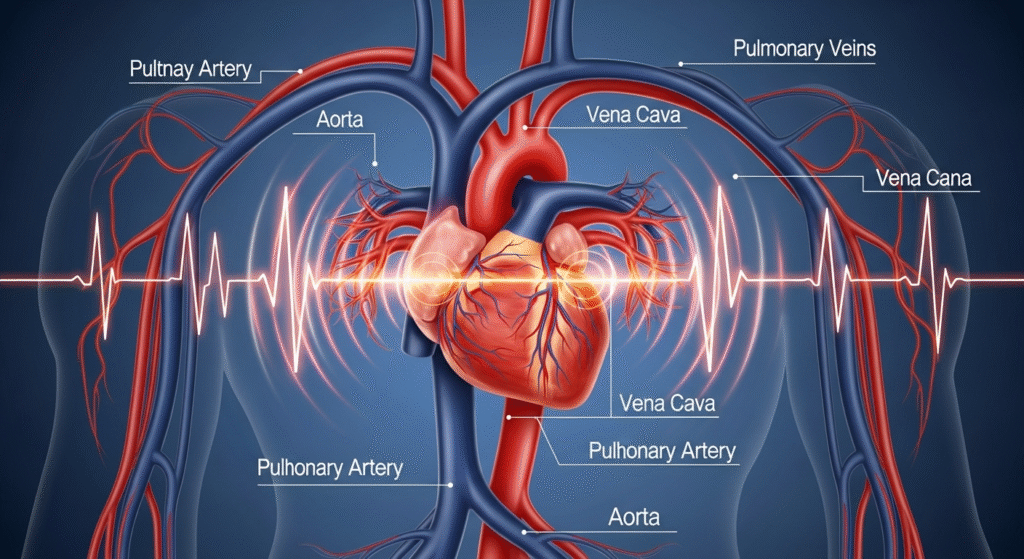
Potassium-Rich for Blood Pressure Regulation
Bananas are a potassium powerhouse, and that’s fantastic news for your heart. Potassium helps maintain the balance of fluids and electrolytes in your body. More importantly, it plays a crucial role in regulating blood pressure.
When your potassium levels are adequate, your blood vessels relax, reducing strain on your cardiovascular system. Studies have shown that diets rich in potassium can help lower blood pressure and reduce the risk of stroke.
The American Heart Association recommends increasing potassium intake to combat the negative effects of sodium. Bananas are a delicious way to meet this goal without needing supplements.
Supports Cardiovascular Function
Beyond just blood pressure, bananas support overall heart health. The fiber content helps to lower LDL (bad) cholesterol levels, reducing your risk of heart disease. The antioxidants in bananas—like dopamine and catechins—also help prevent oxidative stress that can damage your arteries over time.
Regular banana consumption has been linked with lower risk of cardiovascular events. Think of each banana as a tiny heart helper, silently working to keep your ticker strong.
4. Mood and Mental Health Enhancer
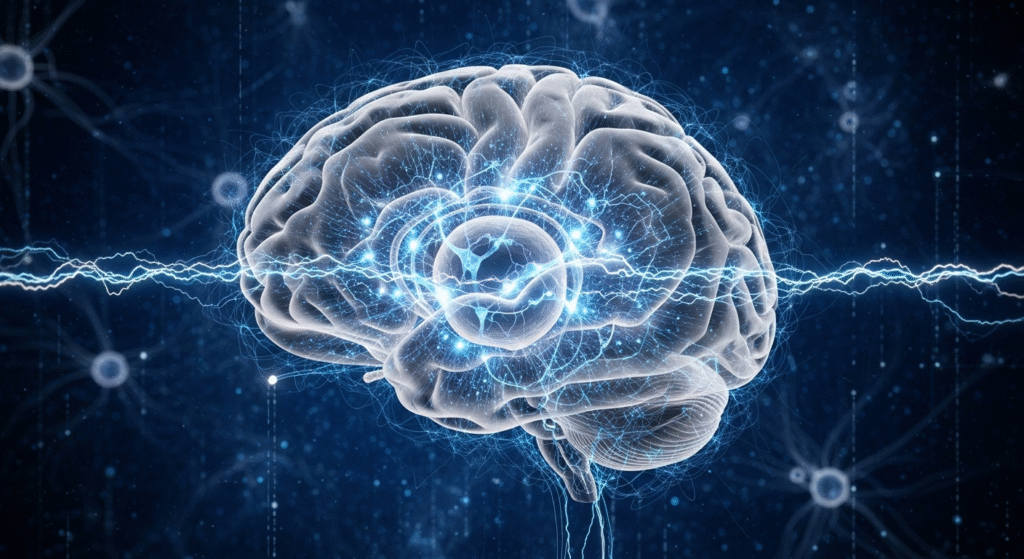
Contains Tryptophan for Serotonin Production
Feeling down? A banana might just help lift your spirits. One of the lesser-known benefits of bananas is their natural ability to support mental health. They contain tryptophan, an essential amino acid that your body converts into serotonin, the “feel-good” neurotransmitter. Serotonin helps regulate mood, sleep, and even appetite.
Think of tryptophan as the raw material your body needs to manufacture happiness. Without it, serotonin levels can drop, leading to feelings of depression or anxiety. Since your body doesn’t produce tryptophan on its own, it must come from your diet—and bananas are a tasty way to get it.
Add in the natural sugars that give you a quick mental energy boost, and bananas become a smart snack for mental clarity and emotional balance. It’s a simple way to fuel your brain without the crash that comes with caffeine or sugary treats.
B-Vitamins That Boost Brain Function
Bananas are also loaded with vitamin B6, which plays a vital role in brain development and function. This vitamin is essential for producing neurotransmitters, including serotonin and dopamine. Without enough B6, you might feel mentally foggy or emotionally unstable.
In fact, just one banana can provide up to 20% of your daily recommended intake of vitamin B6. That’s a pretty impressive brain boost for such a small fruit.
B-complex vitamins also help reduce homocysteine levels in the blood, which is linked to cognitive decline and mood disorders. So if you’re looking to keep your brain sharp and your mood steady, make bananas a daily habit.
5. Weight Management Support

Keeps You Fuller for Longer
Trying to shed a few pounds or maintain a healthy weight? Bananas can be your ally. Thanks to their fiber content, bananas help you stay full for longer, which reduces the urge to snack unnecessarily between meals. That feeling of fullness comes from both soluble and insoluble fiber, which work together to slow digestion and stabilize blood sugar.
Unlike many so-called “diet” foods, bananas are both satisfying and nutrient-dense. One banana has fewer than 120 calories, yet it’s packed with vitamins, minerals, and fiber—all of which support your weight management goals without making you feel deprived.
And the texture? Creamy and satisfying, which makes it feel like an indulgence without the guilt.
Low-Calorie, Nutrient-Dense Snack
What sets bananas apart from processed snacks is their nutrient density. You’re getting a lot of nutritional bang for your calorie buck. With no added sugars, artificial ingredients, or preservatives, bananas are about as clean a snack as you can get.
They’re also a great replacement for higher-calorie desserts. Have a sweet tooth? Slice up a banana, add a sprinkle of cinnamon, and you’ve got a healthy dessert that tastes like banana bread but without the carbs or guilt.
Incorporating bananas into your daily routine is a simple, effective way to manage your weight and keep your energy levels stable. They’re the ultimate “grab-and-go” snack that supports your goals, whatever they may be.
6. Skin and Hair Benefits
Rich in Antioxidants and Vitamins
Bananas don’t just make you feel good—they can make you look good too. They’re rich in antioxidants like dopamine and vitamin C, which combat free radicals that cause skin aging. These antioxidants help reduce inflammation, prevent breakouts, and give your skin a healthy glow.
Vitamin C also boosts collagen production, making your skin more elastic and youthful-looking. Combine that with manganese and vitamin B6, and you have a beauty-boosting powerhouse that works from the inside out.
Regular banana consumption can lead to clearer, more radiant skin over time. And because they’re hydrating, bananas help keep skin cells plump and moisturized—no pricey serums needed.
DIY Banana Masks and Remedies
But the benefits don’t stop at eating bananas. The fruit and its peel can be used topically as well. Banana masks are a popular DIY remedy for dry skin, acne, and even dandruff. Here’s a quick recipe:
For Skin:
Mash 1 ripe banana
Mix with 1 tablespoon honey and 1 teaspoon lemon juice
Apply to face for 15–20 minutes, then rinse
For Hair:
Blend 1 ripe banana with 2 tablespoons coconut oil
Apply to hair for 30 minutes
Wash out with mild shampoo
These home remedies are not only affordable but also free from harsh chemicals found in many commercial products. If you’re into natural beauty hacks, bananas are your new best friend.
7. Bone Health
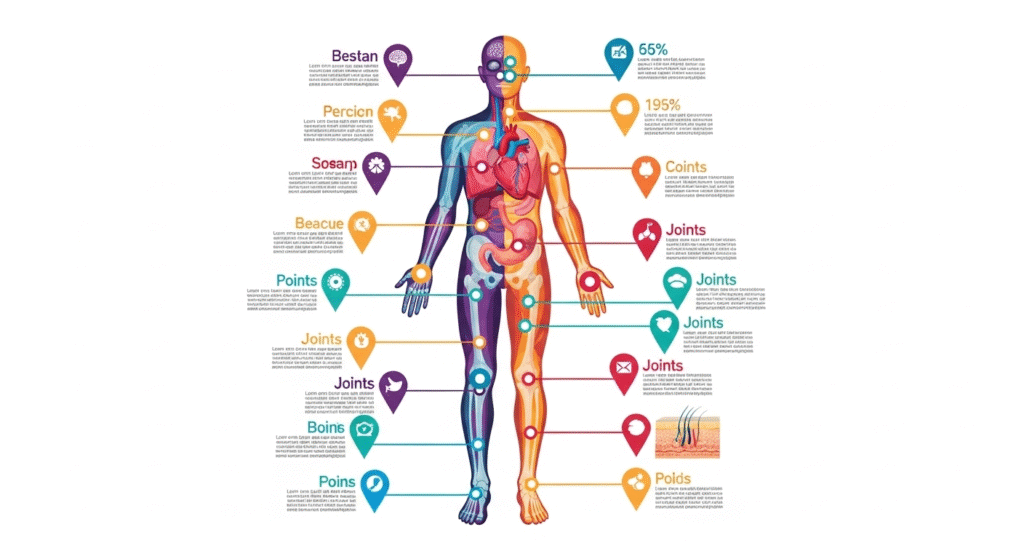
Contains Magnesium and Manganese
Bone health isn’t just about calcium. Magnesium and manganese, both found in bananas, play a critical role in building and maintaining strong bones. Magnesium helps regulate calcium levels, while manganese supports the production of collagen, which is essential for bone flexibility and strength.
Bananas may not be the first food you think of when it comes to bone health, but they contribute significantly to the overall nutrient matrix needed for strong, healthy bones.
For older adults at risk of osteoporosis, adding bananas to their daily diet can provide some of the vital micronutrients needed for prevention.
Supports Calcium Absorption
Another reason bananas are bone-friendly is that they aid in calcium absorption. Thanks to their fructooligosaccharides—a type of prebiotic fiber—bananas help create an environment in the gut that improves mineral uptake, including calcium.
This means the calcium you get from other foods or supplements is more effectively used by the body when you regularly consume bananas. It’s like giving your bones a helping hand, making every meal more nourishing.
If you’re looking for an easy, natural way to support your skeletal system, don’t overlook the banana. It might not have the same spotlight as milk or leafy greens, but it’s quietly doing a lot behind the scenes.
8. Blood Sugar Control
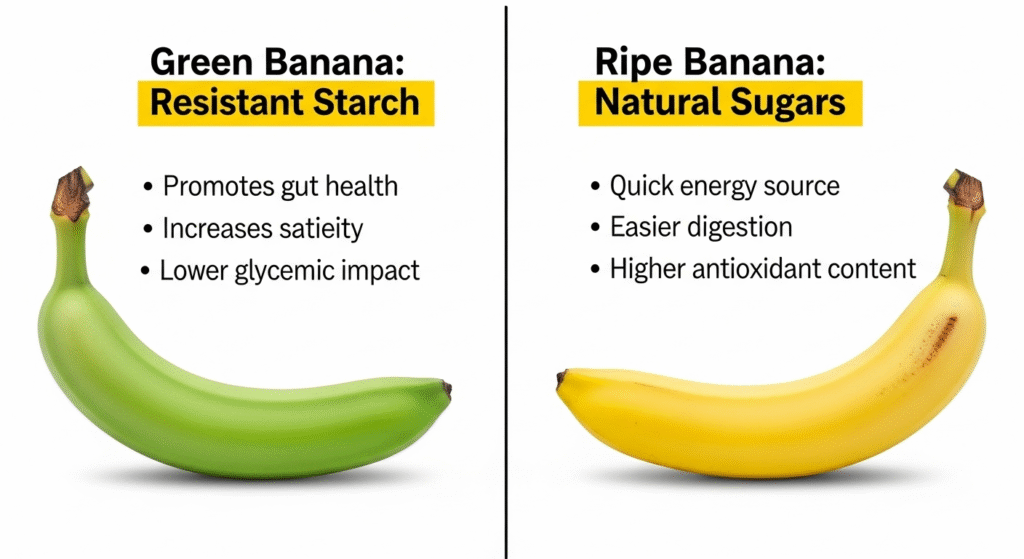
Benefits of Resistant Starch
One of the biggest misconceptions about bananas is that they spike blood sugar. But when you dig into the science, it’s not that black and white. Green or slightly underripe bananas contain something magical: resistant starch. This type of starch resists digestion, acts like soluble fiber, and slows the absorption of sugar into the bloodstream.
Why does that matter? Because slow, steady sugar absorption helps prevent those annoying blood sugar crashes that leave you feeling tired and irritable. For people with type 2 diabetes or insulin resistance, green bananas can be a surprisingly supportive snack option—when consumed in moderation.
Resistant starch also feeds the good bacteria in your gut, which improves your insulin sensitivity over time. It’s a little like hitting two birds with one banana: better blood sugar control and a healthier microbiome.
Moderate Glycemic Index
The glycemic index (GI) of bananas varies depending on how ripe they are. Green bananas have a GI of around 40–50, while fully ripe bananas range from 60–65. That’s still in the moderate range, meaning bananas don’t spike your blood sugar nearly as much as refined carbs or sugary snacks.
To make bananas even more blood sugar-friendly:
Pair them with protein or healthy fats (e.g., peanut butter or Greek yogurt)
Choose slightly underripe bananas
Combine with high-fiber foods like oats or chia seeds
For most people, especially when eaten with balanced meals, bananas can be a delicious part of a blood sugar-stabilizing diet. It’s all about portion control and pairing.
9. Immune System Support
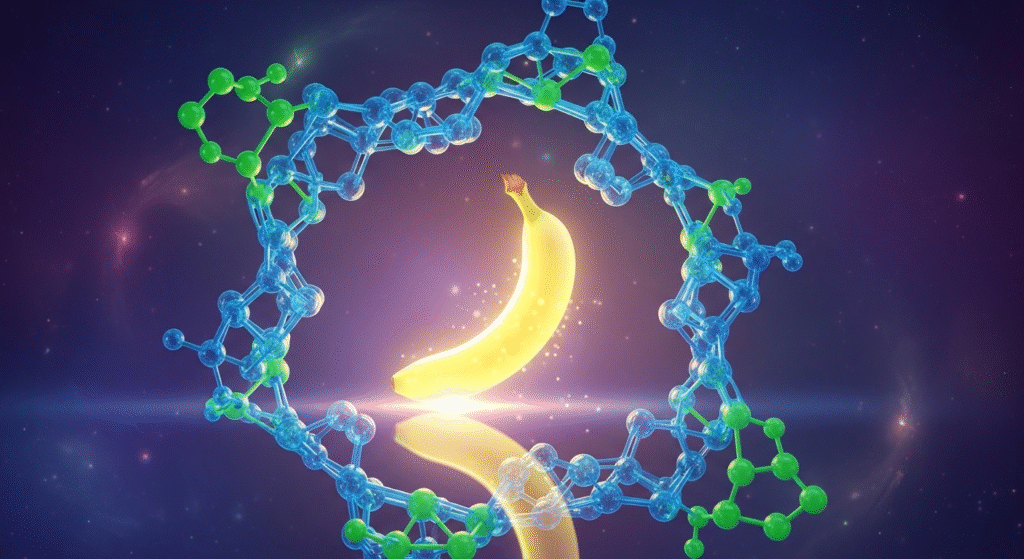
Loaded with Vitamin C and Antioxidants
Bananas may not be citrus fruits, but they still pack a powerful immune punch. One medium banana provides about 10% of your daily vitamin C, a critical antioxidant that protects your body from free radicals and strengthens your immune response.
Vitamin C enhances the function of immune cells and supports faster recovery from illnesses. Paired with vitamin B6, which also plays a role in immune function, bananas help build a stronger line of defense against colds, flu, and other infections.
Additionally, bananas are rich in dopamine and catechins, antioxidants that reduce inflammation and oxidative stress—two major culprits behind chronic disease and poor immune health.
Supports Gut-Immune Connection
Did you know that over 70% of your immune system lives in your gut? That’s where bananas really shine. Thanks to their prebiotic fibers, bananas nourish the good bacteria in your digestive system, which in turn strengthens your immune response.
A well-balanced gut microbiome communicates more effectively with immune cells and helps fight off harmful invaders more efficiently. So when you eat a banana, you’re not just feeding yourself—you’re fueling an entire ecosystem that supports your overall health.
Incorporating bananas into your daily routine is like giving your immune system a daily pep talk. They’re easy to digest, soothing to the stomach, and filled with nutrients that keep your body ready to tackle anything.
10. Bananas for Kids and the Elderly
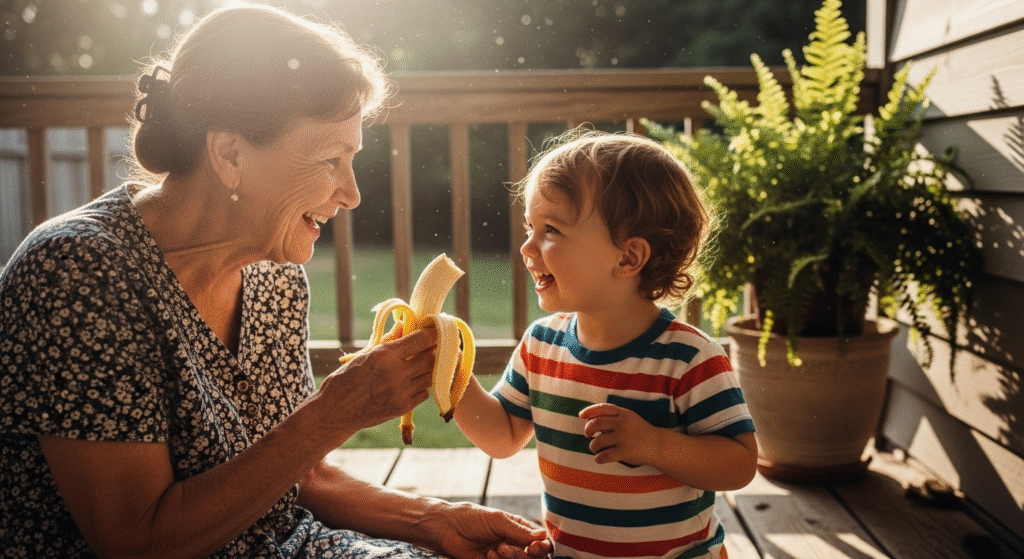
Gentle on the Digestive System
Bananas are one of the first solid foods given to babies for a reason—they’re soft, easy to digest, and packed with essential nutrients. The same qualities make them ideal for the elderly, especially those with weakened digestive systems or difficulty chewing.
They help relieve constipation in toddlers and seniors alike, thanks to their high fiber content. Plus, bananas are rarely associated with allergic reactions, making them a safe choice for people of all ages.
Whether it’s mashed into baby food or blended into a smoothie for grandma, bananas are a wholesome, gut-friendly option that doesn’t require any prep or added ingredients.
Provides Essential Nutrients
Both kids and older adults have unique nutritional needs—and bananas help meet those needs with ease. For children, bananas support:
Brain development (vitamin B6)
Growth (magnesium and manganese)
Immune defense (vitamin C)
For seniors, they:
Help prevent muscle cramps (potassium)
Support bone density (magnesium)
Improve mood and brain clarity (tryptophan and B vitamins)
If you’re a caregiver or parent looking for simple, healthy food that’s versatile and universally loved, bananas check all the boxes. They’re nature’s multivitamin, neatly wrapped and always ready to go.
11. Sustainable and Eco-Friendly Fruit
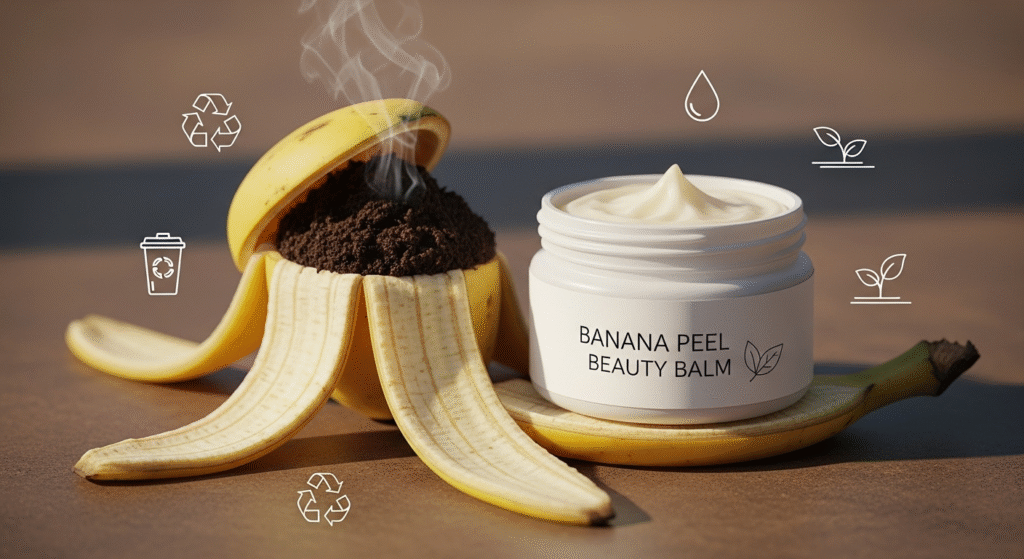
Minimal Waste from Peel to Pulp
One of the underrated aspects of bananas is how sustainable they are. Bananas come with zero packaging, and even their peel has uses—from polishing shoes to fertilizing plants. Compared to other fruits and snacks, bananas have a minimal environmental footprint.
You don’t need plastic containers, wrappers, or refrigeration. They can be bought in bunches and stored easily at room temperature. When you’re done, the peel is 100% compostable. That’s a big win for the planet.
Banana farming has also embraced eco-conscious innovations, with many farms now following sustainable agricultural practices, including water conservation, organic fertilizers, and reduced pesticide use.
Global Impact and Accessibility
Bananas are more than a fruit—they’re an economic lifeline for millions of small farmers around the world. In countries like Ecuador, Colombia, and Uganda, banana production supports local communities and provides income for families.
They are also one of the most affordable fruits available globally. Their accessibility makes them a vital source of nutrition, especially in food-insecure regions. A banana may cost less than a dollar, but its nutritional and economic value is immeasurable.
So when you eat a banana, you’re not only doing something good for your health—you’re also contributing to a more sustainable, equitable food system.
Ways to Incorporate Bananas in Your Diet
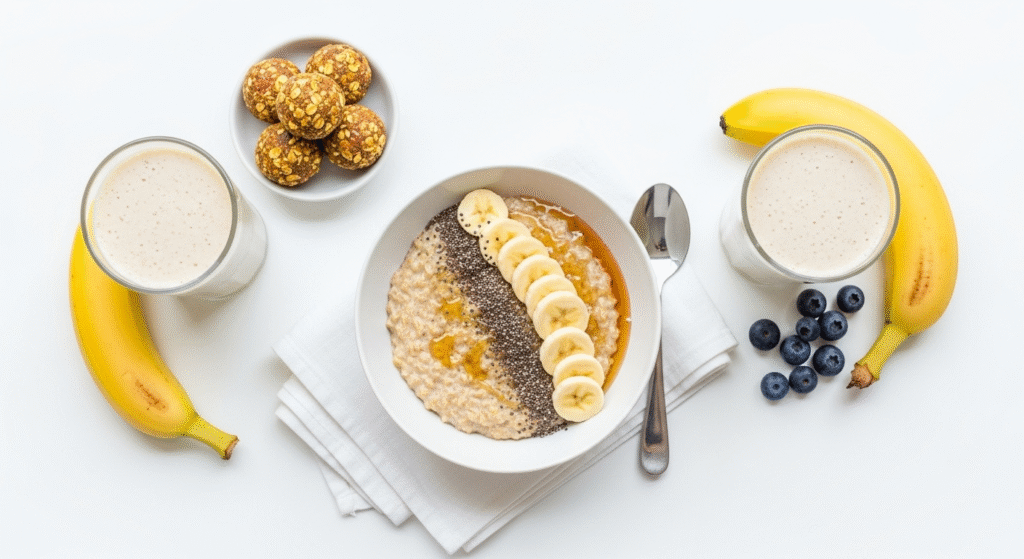
Breakfast, Snacks, and Desserts
Let’s be honest—bananas are delicious on their own, but there are countless ways to incorporate them into your meals throughout the day. From morning to night, bananas fit right in and often make things taste even better.
For breakfast:
Add sliced bananas to oatmeal with cinnamon and almonds
Blend into a smoothie with Greek yogurt and berries
Mash and mix into pancake or waffle batter for a natural sweetener
For snacks:
Pair with peanut or almond butter for a protein-packed energy bite
Freeze banana slices and dip in dark chocolate for a midday treat
Roll banana chunks in chia seeds or crushed nuts for a crunchy delight
For desserts:
Banana “nice cream” (just frozen bananas blended into a creamy texture)
Banana bread or muffins made with whole wheat flour and honey
Caramelized banana topping over yogurt, chia pudding, or ice cream
The options are endless, and best of all, you don’t need to be a chef to whip up something tasty. Bananas bring sweetness, texture, and nutrition to almost any dish without needing extra sugar or complex prep.
Creative Banana Recipes
If you’re looking to get more adventurous, here are a few creative and nutritious banana-based recipes that are as fun to make as they are to eat:
Banana Oat Energy Balls
Mix mashed banana, oats, honey, and a dash of cocoa. Roll into balls and chill. Perfect grab-and-go snack.Stuffed Banana Boats
Slice a banana lengthwise, stuff with nut butter, sprinkle granola and coconut flakes, and bake for 10 minutes.Banana Sushi
Spread peanut butter on a whole banana, roll in crushed cereal or granola, and slice into bite-sized “sushi” rounds.Savory Banana Toast
Add sliced banana on whole-grain toast with cream cheese, arugula, and a drizzle of balsamic for a unique twist.
Bananas are not just tasty—they’re transformative. They can sweeten, thicken, or even bind recipes, making them a go-to for anyone following a healthy or plant-based diet.
Myths and Misconceptions
Do Bananas Make You Fat?
This is probably the most common banana myth—and it’s completely untrue. Bananas are relatively low in calories and fat. One medium banana has about 105 calories and virtually zero fat. That’s fewer calories than most protein bars or processed snacks.
What scares people is the sugar content. Yes, bananas have natural sugars, but they also come with fiber, vitamins, minerals, and zero added sugar—a critical difference. These natural sugars are balanced with nutrients that support energy metabolism, rather than spiking your blood sugar and leaving you crashing.
When incorporated into a balanced diet, bananas do not contribute to weight gain. In fact, they often help people stick to healthy eating by satisfying sugar cravings with a nutrient-packed option.
Can Diabetics Eat Bananas?
Another misconception is that diabetics should avoid bananas completely. The truth? Moderation and pairing are key.
While ripe bananas have a moderate glycemic index, they can still be part of a diabetic-friendly diet. To keep blood sugar stable:
Opt for smaller or greener bananas
Eat bananas with protein or fat (like peanut butter)
Avoid overripe bananas, which have higher sugar content
Bananas also contain fiber and resistant starch, which help slow digestion and glucose absorption. So, instead of banning bananas, it’s better to learn how to enjoy them smartly.
Healthcare professionals often recommend bananas over processed desserts or snacks, even for those managing diabetes. Always consult your doctor, but know that bananas aren’t your enemy—they might just be your best natural ally.
Bananas are far more than just a quick snack—they’re a nutritional powerhouse packed into a convenient, biodegradable wrapper. From aiding digestion and boosting mood to supporting heart health and enhancing your skin, bananas deliver wide-ranging benefits for people of all ages.
Their versatility makes them a kitchen essential, their affordability makes them accessible to all, and their health benefits make them worthy of a daily spot in your diet. Whether you’re an athlete, a busy parent, a health-conscious eater, or someone just trying to feel better day by day, the humble banana is your go-to superfruit.
So the next time you pass by that bunch of yellow in the grocery aisle, remember: you’re not just buying a fruit—you’re investing in better health, more energy, and even a brighter mood.
Make room for bananas in your life—you’ll be amazed at what one fruit can do.
FAQs
1. Are bananas good for weight loss?
Yes! Bananas are high in fiber, low in calories, and help keep you full longer. They can curb sugar cravings and support a healthy metabolism, making them a great option for weight management.
2. Can I eat bananas every day?
Absolutely. Eating one banana a day is not only safe but beneficial for most people. It provides essential nutrients like potassium, vitamin B6, and fiber. Just be mindful if you have kidney issues or dietary potassium restrictions.
3. Do bananas really help with digestion?
Yes, bananas contain both soluble and insoluble fiber, which aids digestion and promotes regular bowel movements. They’re also rich in prebiotics that support a healthy gut microbiome.
4. What’s the best time to eat a banana?
You can eat bananas anytime, but they’re especially great in the morning or before/after a workout for a quick energy boost. Eating them with a source of protein or fat also helps sustain energy levels.
5. Can I eat bananas at night?
Yes, bananas contain tryptophan and magnesium, which promote relaxation and better sleep. Eating a banana before bed may help you fall asleep faster and enjoy more restful sleep.
